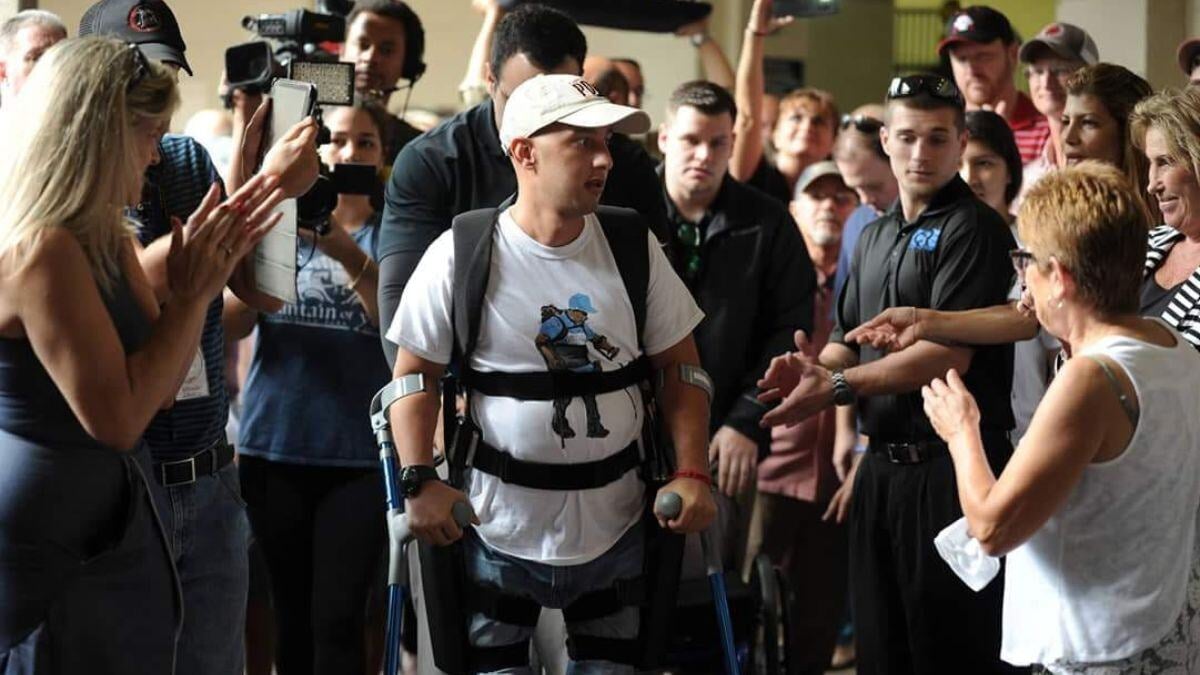Bringing Back the Bible
Author: John Stonestreet and Dr. Timothy D. Padgett
2 min read
 Breakpoint
:
Updated on December 11, 2024
Breakpoint
:
Updated on December 11, 2024

Author: John Stonestreet and Jared Hayden
Thanks to a $100,000 medical device known as the ReWalk Personal Exoskeleton, former jockey Michael Straight learned to walk again five years after being paralyzed from the waist down following a horseback riding accident. By supporting his limbs and artificially moving his legs, the machine has helped Straight return to a more normal life. He has since taken 371,091 steps.
However, this past summer, a small wire came loose and caused the exoskeleton to stop working. When Straight asked the company for technical support to fix the device, he was told they did not service machines more than five years old. Straight was shocked, telling a horse-racing news outlet,
It’s not fair to people like me, as hard as a paraplegic’s life is, and they’re making it harder. … I just don’t understand how they can say that after five years, a $100,000 machine is not worth anything. That’s very hard to believe.
Thankfully, with the help of media coverage, the company changed course and repaired Straight’s walking device. They did not, however, commit to future repairs, leaving Straight and others like him at the mercy of technicians and company policies.
In other words, despite all the promise of medical and technological miracles (and AI for that matter), the human factor remains. In his masterful book Abolition of Man, C.S. Lewis offered an essential tempering on the hype of technological progress. Modern man’s conquest of nature is not as neutral as is often claimed. “What we call Man’s power over Nature,” he wrote, “turns out to be a power exercised by some men over other men with Nature as its instrument.” 
The greater power some men have the greater potential for corruption. Lord Acton’s observation, that “power corrupts, and absolute power corrupts absolutely,” applies whether the power achieved is political or technological. According to Straight, ReWalk’s refusal to repair their own machine was a “pathetic excuse for a bad company to make more money,” but there’s more to this story than just greed. As one consumer rights advocate put it,
This is the dystopian nightmare that we’ve … entered in, where the manufacturer perspective on products is that their responsibility completely ends when it hands it over to a customer.
No matter how marvelous or efficient or miraculous, all interactions and transactions with other human beings—technological or not—must be shaped by recognizing people as the image bearers of God they are. Any technological advances without that moral framework can never deliver true care. Instead, care will be redefined to a new definition of humanity. This definition, Lewis thought, would come from “men who have sacrificed their own share in traditional humanity in order to devote themselves to the task of deciding what ‘Humanity’ shall henceforth mean.”
The Christian conviction that all people possess intrinsic dignity not only gave birth to modern medical care but also shaped how it was to be done. And, a study by the Acton Institute found that Catholic and church-owned healthcare systems were “significantly more likely to provide higher quality care and efficiency.” Untethering medicine from Christian ideas will have consequences. The same will be true of medical technologies.
Like medical doctors, medical tech companies should take a sort of Hippocratic Oath. “First, do no harm” would be a good place to start.

Author: John Stonestreet and Dr. Timothy D. Padgett

Author: John Stonestreet and Dr. Glenn Sunshine

Author: John Stonestreet and Dr. Timothy Padgett